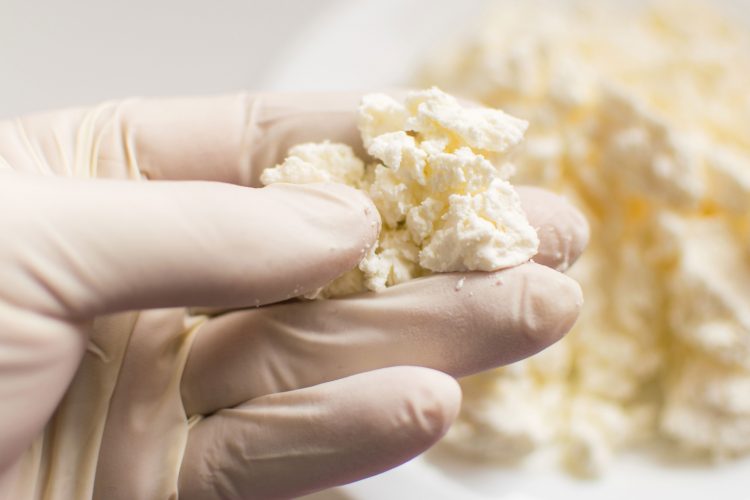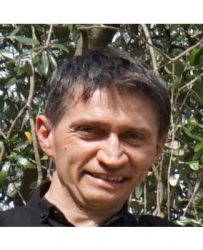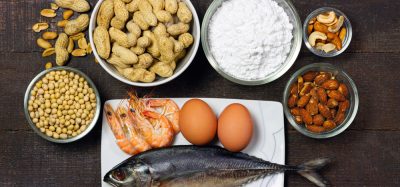Detecting fraud – a discussion with Michele Suman
- Like
- Digg
- Del
- Tumblr
- VKontakte
- Buffer
- Love This
- Odnoklassniki
- Meneame
- Blogger
- Amazon
- Yahoo Mail
- Gmail
- AOL
- Newsvine
- HackerNews
- Evernote
- MySpace
- Mail.ru
- Viadeo
- Line
- Comments
- Yummly
- SMS
- Viber
- Telegram
- Subscribe
- Skype
- Facebook Messenger
- Kakao
- LiveJournal
- Yammer
- Edgar
- Fintel
- Mix
- Instapaper
- Copy Link
Posted: 27 November 2019 | Bethan Grylls (New Food) | No comments yet
Ahead of Food Integrity 2020, New Food’s editor speaks to Michele Suman, who will be discussing validation of non-targeted mass spectrometry methods to detect food frauds at Food Integrity 2020.


After a successful three years, New Food’s Food Fraud event is evolving to encompass the latest challenges and innovations effecting the industry. Food Integrity 2020 will explore some of the toughest questions we are currently facing, with leaders from the food and beverage sector coming together to debate, discuss and share their experiences and solutions in this two-day event.
Here, Bethan Grylls speaks with Michele Suman, who will be discussing food authenticity testing. He will be examining validation of non-targeted mass spectrometry methods, from theory to real applications.
Suman works at Barilla Advanced Laboratory Research as Head of the Food Safety & Authenticity Research Department. During the presentation at Food Integrity, he will be leveraging his experience as an industrial integration work package leader of the recently and successfully completed European funded project known as FoodIntegrity (FI).
“Among practical instruments that help food industries into assuring the integrity of their products, FI provided online resources such as FI Knowledge Base & FI Network. Simply put, the first helps users to find and deploy the right analytical strategies, and the second suggests which organisations/authorities in different countries have the appropriate expertise to perform them,” explained Suman.
“Whether there is the need to defend the quality of food products against frauds by legal means, stakeholders can rely on FI scientific opinions as a dependable point of reference.”
In terms of what has been achieved: “A selection/evaluation of relevant chemical/molecular-biology markers, which can be connected to specific quality/authenticity aspects of both raw materials/ingredients and corresponding finished products has been created. Testing and validation of: (i) rapid screening high-throughput technologies and multivariate approaches, (ii) profiling/fingerprinting/ targeted or non-targeted fundamental methods have been executed.”
He continued: “A set of industrial guidelines, which describe the procedures that any company can adopt to prevent and counteract frauds through the whole supply chain, has been concretised. While dissemination activities and training to researchers and industrial operators has been put in place from a cross-disciplinary point of view which brings together analytical chemistry, quality management, marketing, consumer and economic science.”
Challenges in food fraud and the evolution of authenticity testing
“European foods are under constant threat of frauds and adulterations,” Suman told New Food. “The consumer expects to buy products whereby safety, quality and authenticity are assured. These parallel aspects represent a big challenge for the industry.
“For this reason, the demand of both rapid and confirmatory methods able to detect different frauds have increased in the last few years, and several scientific publications are focused on this topic.”
However, Suman believes that the academic and production worlds remain disconnected, with several methods presented in literature having not been applied in plants. The industry, he added, may not even know of some of these methods, while some “academic suggestions” are not applicable in the routine analyses.
“These two entities should continue to talk, in order to develop more sophisticated and robust techniques that could merge the scientific novelty with the reliable application in the production plants,” he advised.
“The industrial partnership and collaboration in the recently completed FI project have enabled us to fully understand the opportunities that this multi-faceted initiative presents to food businesses. It also provides a comparison of the perspective of food chain vulnerabilities vs current analytical methods and technologies,” he said.


For further information and to book your tickets for Food Integrity, please click here.
Biography


Michele Suman
Michele Suman was born in Rovigo, Italy, in 1973. He gained an analytical chemistry degree, summa cum laude, at University of Ferrara in 1997. Then, in 1998, he was awarded the National Prize for Young Researchers by the Italian Chemistry Federation.
He has a Masters in Science, Technology and Management and a PhD in Science and Technology of Innovative Materials from University of Parma. He has been in his role as Food Safety & Authenticity Research Manager at the Barilla Spa company since 2003. Here, he has been working in an international contest with public and private research centres and organisations on research projects within the field of food chemistry, food safety-quality-authenticity, food contact materials, sensing and mass spectrometry applications for food products.
Michele is a member of working groups in European Committee for Standardization (CEN) and Chair of the ILSI Process Related Compounds & Natural Toxins Task Force; Leader in the Food Safety Section of Italian National Cluster Agrifood, member of the Board of Mass Spectrometry Division – Italian Chemistry Society.
He has been involved in various National/European Funded Projects and presently is WP Leader in the EU-FP7 FoodIntegrity Project and in the EU-H2020 MyToolBox projects. His scientific production is documented by six book chapters, 130 contributions at national and international conferences and 80 papers in international ISI journals.
Related topics
Equipment, Food Fraud, Food Safety, Gas Chromatography/Mass Spec (GC/MS), Liquid chromatography–mass spectrometry (LC-MS), Spectroscopy






